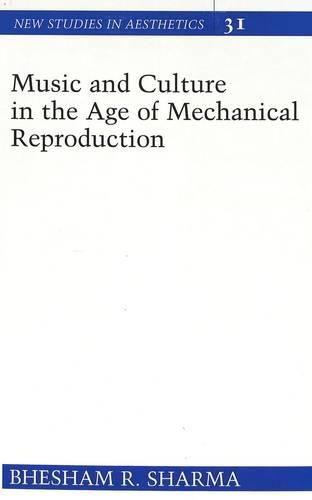Readings Newsletter
Become a Readings Member to make your shopping experience even easier.
Sign in or sign up for free!
You’re not far away from qualifying for FREE standard shipping within Australia
You’ve qualified for FREE standard shipping within Australia
The cart is loading…






One of T. W. Adorno’s greatest philosophical achievements, The Philosophy of Modern Music, continues to be one of his most misunderstood. Many scholars take Adorno’s book literally although he never meant it to be perceived solely in that way. This study focuses on the literal, symbolic, and metaphorical dimensions of The Philosophy of Modern Music. It explains Adorno’s cryptical style of writing and reveals how he uses the works of Schoenberg and Stravinsky to discuss kitsch and avant-garde art during the rise of fascism in Germany. It also highlights Adorno’s subtle critique of the aesthetic ideas of Benjamin, Hegel, Freud, Jung, and others. Adorno intended The Philosophy of Modern Music to be a Flaschenpost, a message in a bottle, able to maintain its analytical rigor through time. This study shows that when one applies his insights from The Philosophy of Modern Music to present-day cultural practices, they seem more relevant than ever.
$9.00 standard shipping within Australia
FREE standard shipping within Australia for orders over $100.00
Express & International shipping calculated at checkout
One of T. W. Adorno’s greatest philosophical achievements, The Philosophy of Modern Music, continues to be one of his most misunderstood. Many scholars take Adorno’s book literally although he never meant it to be perceived solely in that way. This study focuses on the literal, symbolic, and metaphorical dimensions of The Philosophy of Modern Music. It explains Adorno’s cryptical style of writing and reveals how he uses the works of Schoenberg and Stravinsky to discuss kitsch and avant-garde art during the rise of fascism in Germany. It also highlights Adorno’s subtle critique of the aesthetic ideas of Benjamin, Hegel, Freud, Jung, and others. Adorno intended The Philosophy of Modern Music to be a Flaschenpost, a message in a bottle, able to maintain its analytical rigor through time. This study shows that when one applies his insights from The Philosophy of Modern Music to present-day cultural practices, they seem more relevant than ever.